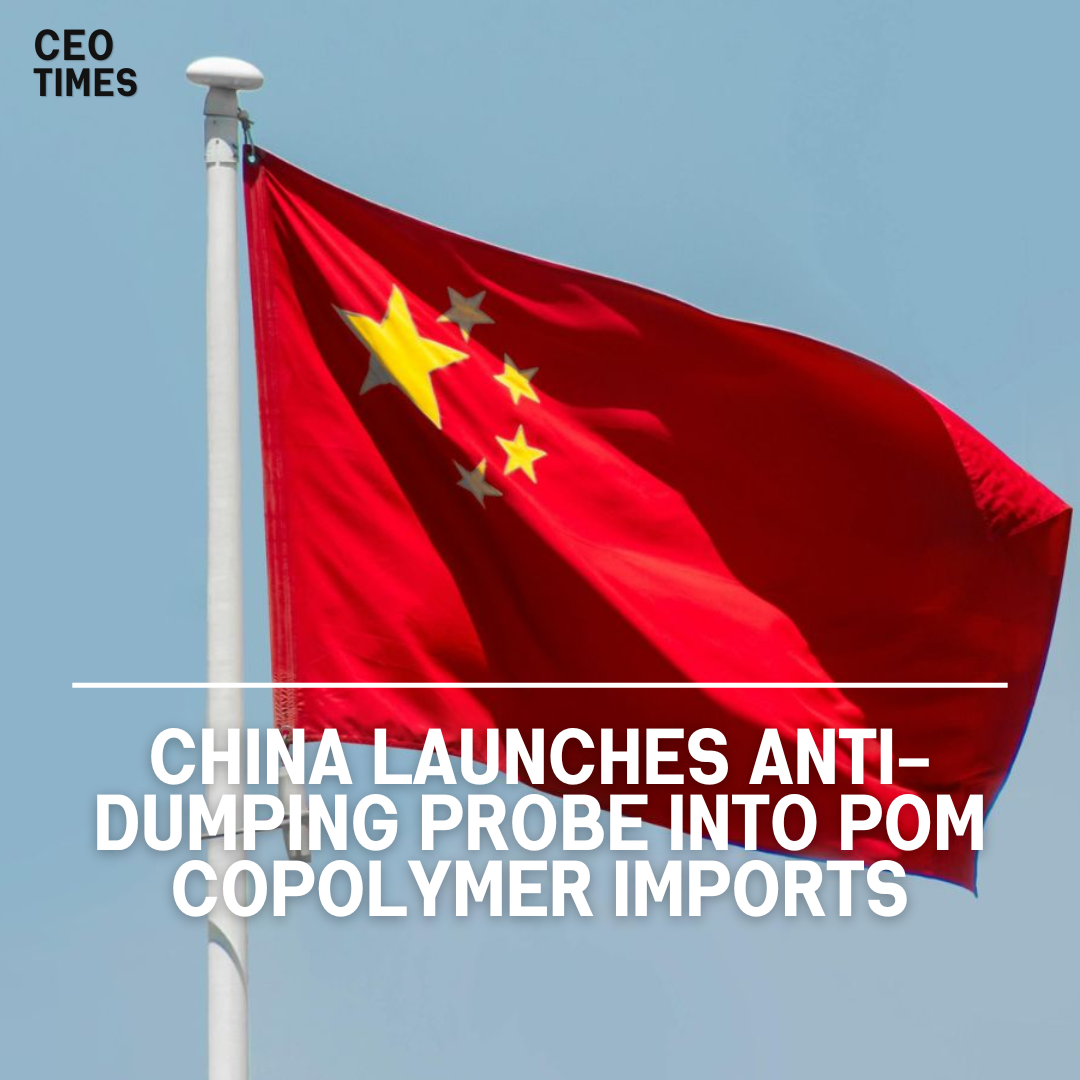On Sunday, China’s Ministry of Commerce initiated an anti-dumping investigation into imports of polyoxymethylene (POM) copolymers from the European Union, the United States, Japan, and Taiwan.
POM copolymers are a type of engineering chemical valued for their ability to partially replace metals such as copper and zinc in various applications.
Applications of POM Copolymers:
POM copolymers are versatile materials used across multiple industries. They are integral in manufacturing auto parts, electronics, and medical equipment due to their excellent mechanical properties, high stiffness, low friction, and dimensional stability.
Their ability to substitute for metals in these applications makes them crucial for innovation and production efficiency in these sectors.
Details of the Anti-Dumping Probe:
The Chinese Ministry of Commerce stated that the investigation would seek to determine if POM copolymers from the targeted regions are being sold in China at unfairly low prices, harming the domestic industry. The investigation is expected to be completed within a year but could be extended by six months if necessary.
Potential Implications:
The initiation of this probe signifies China’s ongoing efforts to protect its domestic industries from unfair competition and provide a level playing field for local manufacturers.
If the investigation finds evidence of dumping, it could lead to the imposition of tariffs or other trade remedies on imports of POM copolymers from the EU, U.S., Japan, and Taiwan. This could impact global trade dynamics and the supply chains of industries reliant on these materials.
Broader Context:
This probe aligns with China’s broader strategy of scrutinizing and potentially restricting imports that may harm its domestic industries. Similar investigations have been launched in the past targeting various products and countries.
The outcome of this investigation could further shape China’s trade policies and its economic relations with the EU, U.S., Japan, and Taiwan.



















